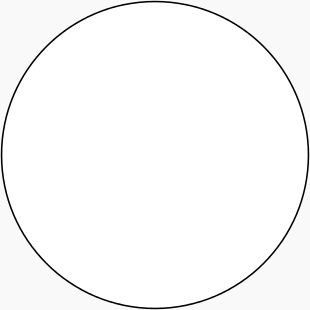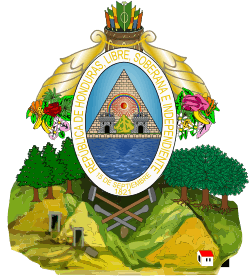Religion in Honduras
The pre-Hispanic peoples that lived in actual Honduras were primarily polytheistic Maya and other native groups. In the 16th century, Christianity was introduced by the Spanish Empire.
History
Ancient Religion
The ancient Maya religion was an important religion in Copan (Honduras), between the fourth and seventh century AD.
Post-Colonial Religion
The first Roman Catholic mass celebrated in the continental New World was on August 14, 1502 in Punta Caxinas, which was two weeks after the supposed "discovery" of Honduras by Christopher Columbus. Since then, the Spanish began a process of converting and baptizing Honduran natives to the Catholic faith...
Independence and freedom of religion
The Honduran Constitution provides for freedom of religion, and other laws and policies contributes to the generally free practice of religion.[2] The law at all levels protects this right in full against abuse, either by governmental or private actors.[2] The Government generally respects religious freedom in practice.[2] In 2008, the US Government received no reports of societal abuses or discrimination in Honduras based on religious affiliation, belief, or practice.[2]
20th century
In recent years, the principal religious groups are Roman Catholic, Episcopal, Lutheran, Jehovah's Witness, Mennonite, approximately 300 evangelical Protestant groups, and the Church of Jesus Christ of Latter-day Saints (Mormon).[2]
The Catholic Church in Honduras is composed of eight dioceses: Tegucigalpa, Comayagua, Choluteca, Olancho, Yoro, San Pedro Sula, Trujillo and Copán which are a part of the Conference Episcopal of Honduras.
The Protestant churches are structured by three confederacies: The Shepherds' Association of Honduras, the Evangelical Brotherhood of Honduras and the Apostolic Network of Honduras.
Both the Roman Catholic Church as well as the Protestant churches, especially the Pentecostal denominations, have experienced growth thanks in large part to modern forms of mass communication in recent decades.
The Church of Jesus Christ of Latter-day Saints built a temple in Tegucigalpa, Honduras, making it one of the six LDS temples in Central America.
The most prominent evangelical churches in the country include the "Abundant Life", the "Living Love", and the Great Commission Churches.[2] A growing number of evangelical churches have no denominational affiliation.[2] The National Association of Evangelical Pastors represents the evangelical leadership.[2] There are small numbers of Muslims and Jews.[2] San Pedro Sula has a mosque and a synagogue, and Tegucigalpa has a synagogue.[2]
Statistics
There are no reliable government statistics on religious affiliation in Honduras.[2] In a 2007 nationwide survey, CID-Gallup reported that:
47 percent of respondents identify themselves as Roman Catholic, 36 percent as evangelical Protestant, and 17 percent either provide no answer or consider themselves "other".[2]
See also
- Islam in Honduras
- Roman Catholicism in Honduras
- Virgin of Suyapa, perhaps Honduras' most popular religious image.
References
- ↑ "Las religiones en tiempos del Papa Francisco" (PDF) (in Spanish). Latinobarómetro. April 2014. p. 6. Archived from the original (pdf) on 4 April 2015. Retrieved 4 April 2015.
- 1 2 3 4 5 6 7 8 9 10 11 12 International Religious Freedom Report 2008: Honduras. U.S. Department of State (2008).
 This article incorporates text from this source, which is in the public domain.
This article incorporates text from this source, which is in the public domain.


.svg.png)